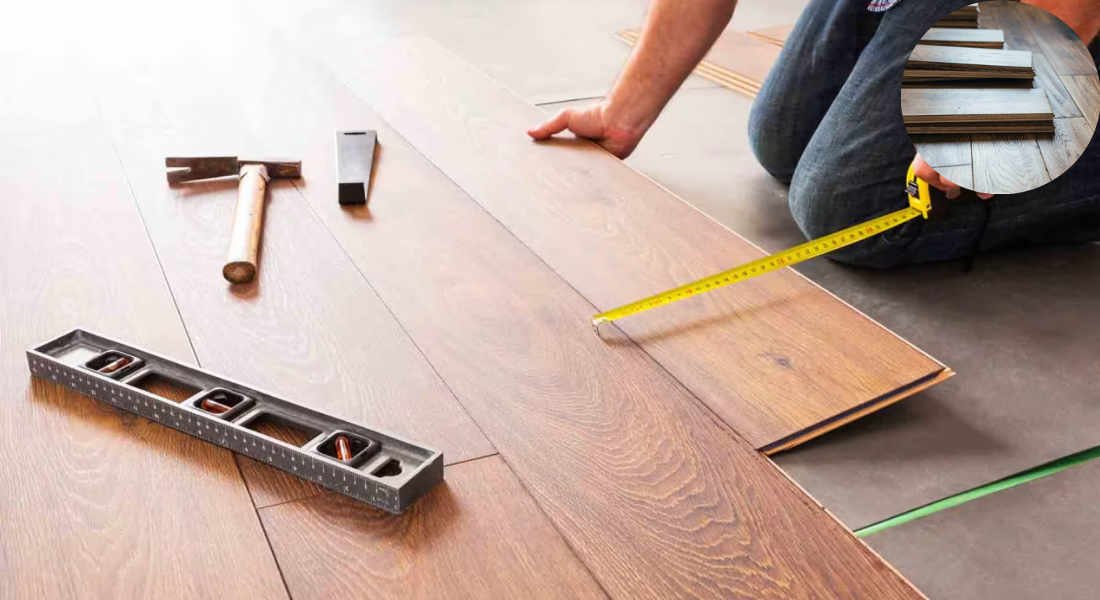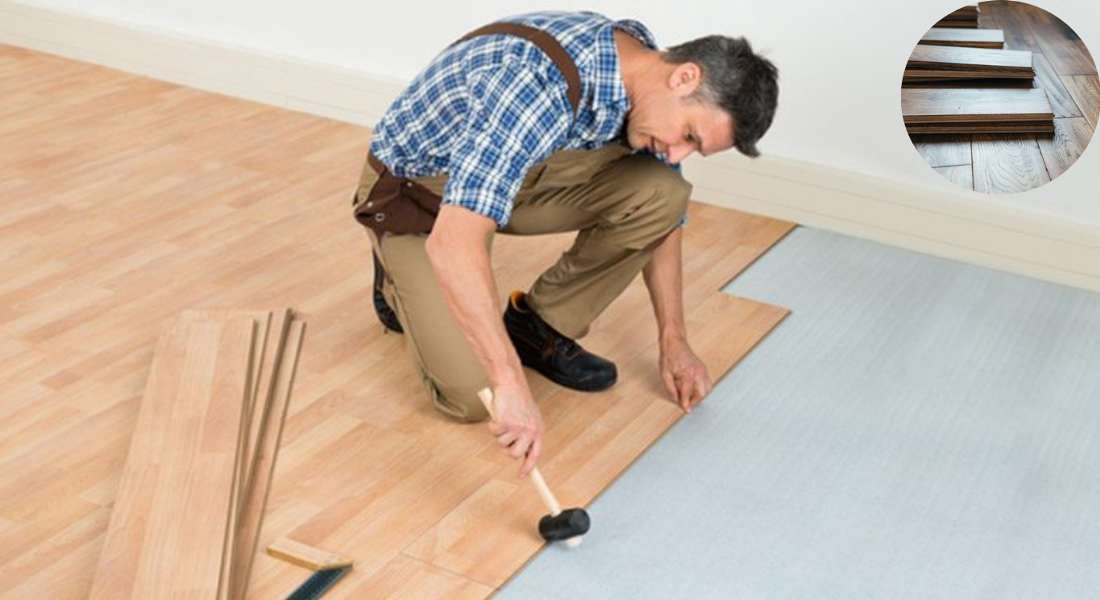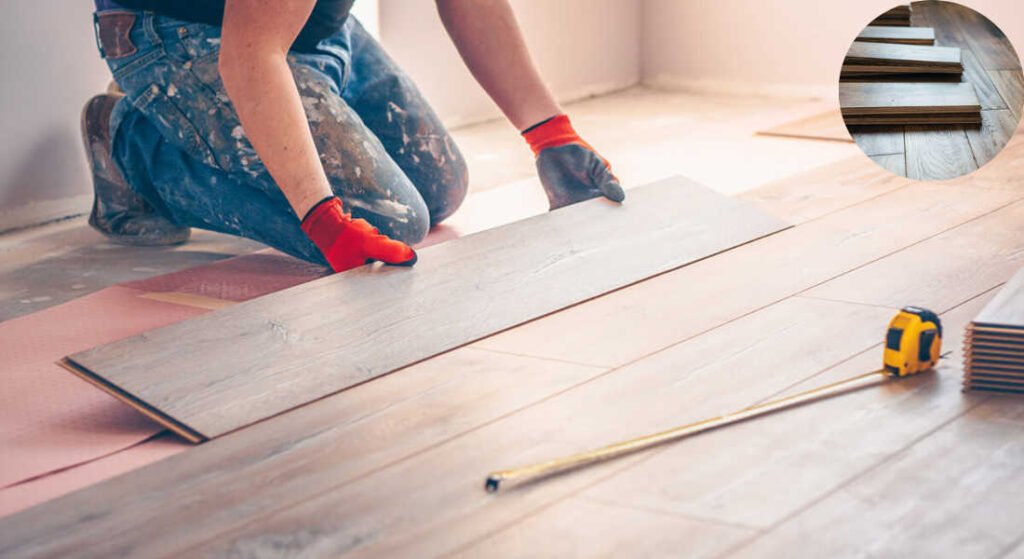When it comes to increasing the value of a home, homeowners often focus on kitchen renovations, bathroom upgrades, or landscaping improvements. But have you ever considered the transformative power of new flooring? From creating an inviting atmosphere to boosting your property’s resale value, new flooring has an undeniable impact on how your home is perceived and priced in the real estate market.
Why Flooring Matters in Home Value
Your flooring is more than just a surface to walk on—it’s a critical design element that shapes a home’s overall appeal and value. Let’s delve into why flooring plays such a crucial role in how buyers and appraisers perceive a property.
First Impressions and Buyer Perception
The moment potential buyers step into your home, the flooring is one of the first things they notice. Outdated, damaged, or worn-out floors can leave a negative impression and make the entire house feel neglected. On the other hand, clean, modern, and well-maintained flooring can set the tone for a welcoming and stylish space.
- Buyers are emotionally influenced by aesthetics. If your flooring feels fresh and contemporary, it can make the entire house feel move-in ready.
- Outdated materials, like old carpets or linoleum, can deter buyers. They may view the home as a fixer-upper and lower their offers to account for the cost of replacing the floors.
Flooring’s Role in Overall Home Quality Perception
Flooring quality is often associated with how well a home has been maintained. A house with premium, spotless flooring signals care and attention to detail, which increases perceived value. On the contrary, poorly maintained flooring can suggest neglect in other areas of the home.
- Premium flooring like hardwood or luxury vinyl planks makes an impact. Buyers often equate these materials with durability and elegance.
- Inconsistent flooring throughout the home can create a disjointed feel. Matching flooring across key spaces, like the living room and kitchen, creates a seamless look that appeals to buyers.
Return on Investment (ROI) of New Flooring
One of the most common questions homeowners ask is whether new flooring is worth the cost. The answer? Absolutely—if you choose the right materials and approach. Let’s explore the financial benefits of investing in updated flooring.
You may also read (small shelves for home bathrooms).
Overview of Flooring ROI
Flooring upgrades are considered one of the most cost-effective home improvements. While not every material delivers the same ROI, the right choices can significantly boost your home’s market value.
- New flooring can yield an ROI of up to 80%. The exact ROI depends on the material, installation quality, and how well it matches the home’s style.
ROI by Flooring Type
Different types of flooring offer varying levels of return on investment. Here’s a breakdown of the most popular options:
Flooring TypeROIKey Advantages
Hardwood 70-80% Timeless, durable, and highly sought after by buyers.
Luxury Vinyl Tiles (LVT) 60-70% Affordable, water-resistant, and ideal for high-traffic areas.
Tile Flooring 60-70% Perfect for kitchens and bathrooms; adds longevity.
Carpet 40-50% Great for comfort, but lower ROI compared to hard surfaces.
Factors Affecting ROI
Even with the best materials, a few factors can influence how much value your new flooring adds:
- Quality of Installation – Poorly installed flooring can lower the value rather than increase it. Always hire professionals for the best results.
- Condition of Existing Floors – Homes with severely damaged or outdated flooring benefit the most from a full replacement.
- Style and Design Alignment – The new flooring should complement your home’s architecture and style. For example, rustic hardwood fits well in traditional homes, while sleek tiles suit modern spaces.
How New Flooring Enhances Home Functionality and Safety
Beyond aesthetics and ROI, new flooring can also improve your home’s functionality and safety. This makes it a practical investment, especially for families or homes with high traffic.
Improved Safety
Worn or damaged flooring can pose safety hazards, such as tripping or slipping risks. Replacing these floors with modern materials can make your home safer for everyone.
- Eliminate tripping hazards by fixing uneven surfaces or warped boards.
- Reduce allergens by replacing old carpets with hard-surface options like vinyl or tile, which are easier to clean.
Enhanced Durability and Maintenance
Modern flooring materials are designed for longevity and easy upkeep, making them ideal for today’s busy homeowners.
- Luxury vinyl and engineered wood resist water and scratches, making them perfect for kitchens, bathrooms, and homes with pets.
- Tile flooring is nearly indestructible and can withstand heavy foot traffic without showing wear.
Suitability for Different Lifestyles
Every household has unique needs, and the right flooring can cater to your lifestyle:
- Families with kids and pets benefit from scratch-resistant and spill-proof materials, like vinyl planks.
- Homeowners in warm climates may prefer tile or stone flooring, which stays cool and comfortable.
Choosing the Right Flooring to Maximize Home Value
Selecting the right flooring material can be overwhelming, but with a thoughtful approach, you can make a choice that enhances your home’s value and marketability.
You may also read (importance of home improvement).
Matching Flooring to Home Style and Location
Your flooring should complement the home’s overall style and location:
- Traditional homes benefit from classic materials like hardwood or neutral carpets.
- Modern homes pair well with sleek tiles or polished concrete.
- Geographic trends matter too—homes in colder regions may favor carpeted bedrooms, while warmer climates lean toward tile or vinyl.
Material Selection Tips
When choosing flooring materials, consider these factors:
- Budget – High-end materials like hardwood may be expensive, but offer the best ROI. Budget-friendly options like LVT can still add significant value.
- Durability – Choose materials that can withstand wear and tear, especially in high-traffic areas.
- Aesthetic Appeal – Neutral colors and timeless designs appeal to the widest range of buyers.
Design Trends and Timelessness
While trendy flooring designs may look appealing now, they can quickly become outdated. Opt for classic and versatile styles that will retain their appeal over time.
- Herringbone patterns and wide planks are timeless options for wood flooring.
- Avoid overly bold or unique colors that may not resonate with future buyers.
Flooring and Marketability: Selling Your Home Faster and at a Better Price
Investing in new flooring doesn’t just boost your home’s value—it also makes it more attractive to buyers, helping you sell faster and potentially at a higher price.
Increased Buyer Interest
Homes with fresh, modern flooring stand out in competitive markets. Buyers are drawn to properties that feel updated and move-in ready.
- Updated flooring reduces buyer concerns about immediate repair or replacement costs.
- A cohesive flooring design enhances the overall flow of the home, making it more visually appealing.
Faster Sales and Higher Offers
According to real estate experts, homes with updated flooring often sell faster and receive higher offers. Buyers are willing to pay a premium for properties that don’t require significant upgrades.
- Move-in-ready homes are highly desirable, as they save buyers time and effort.
- Higher perceived value leads to competitive bidding and better offers.
Practical Tips for Homeowners Considering New Flooring
If you’re considering upgrading your floors, here are a few practical tips to help you maximize your investment:
Assess Your Current Flooring Condition
Before replacing your floors, evaluate their current state. In some cases, a deep cleaning or minor repair may suffice, saving you money.
- Replace flooring if it’s severely damaged or outdated.
- Consider refinishing hardwood floors instead of replacing them if they’re in decent condition.
Consult Real Estate Professionals
Real estate agents can provide valuable insights into what buyers in your area prefer. They can help you choose flooring materials that offer the best ROI for your specific market.
Budgeting and Planning
Prioritize high-impact areas like the living room, kitchen, and bathrooms. These spaces leave the strongest impression on buyers and are worth the investment.
You may also read (dream home in barbados with a n kirton).

